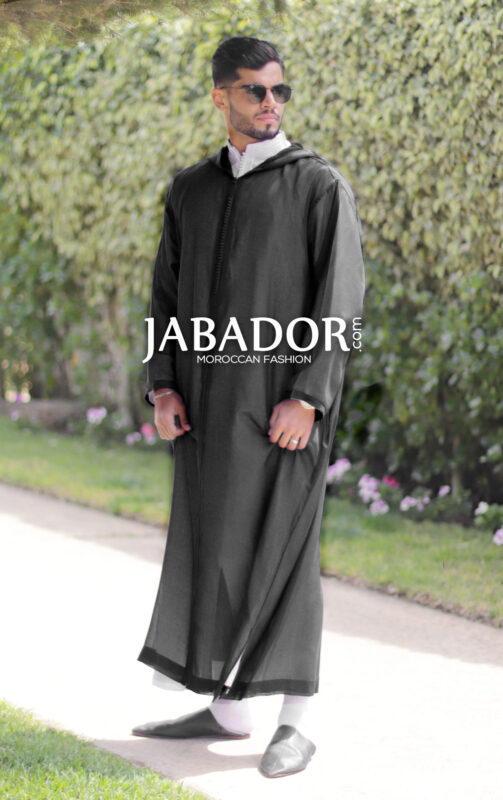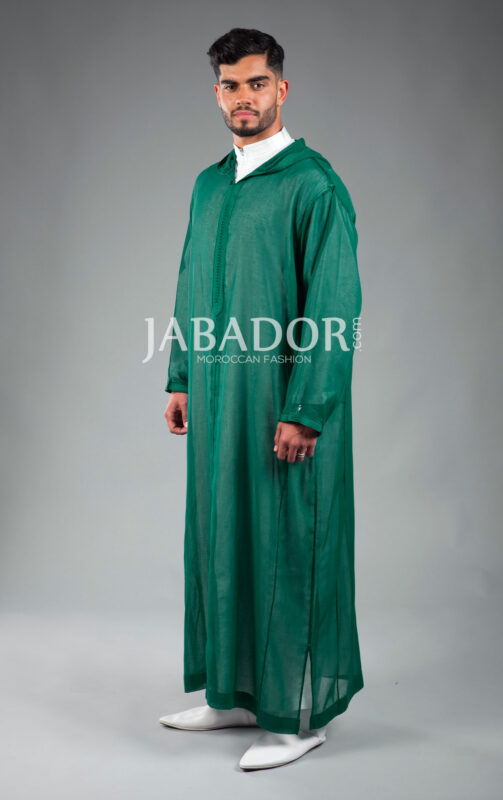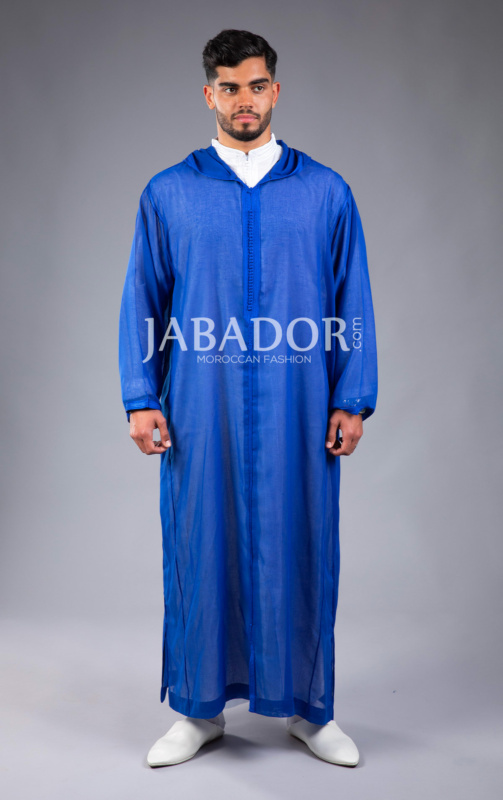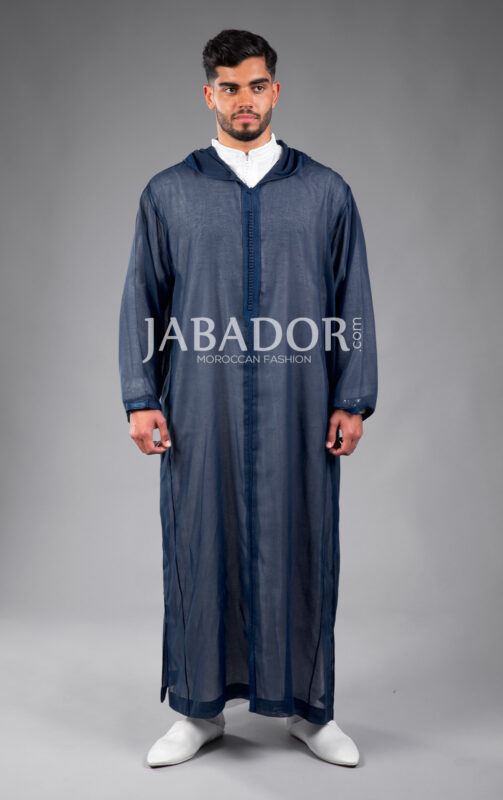Djellaba
Moroccan Djellaba
If there's one Muslim garment that's directly associated with Moroccan or Moroccan identity, it's the Djellaba, an emblematic traditional garment rich in history and culture.
The etymology of the word "djellaba" is linked to the linguistic and cultural history of the country. Of Berber origin, it is a derivative of the word "Jillab", meaning long garment. Depending on the region, this garment may also be called "Jellaba" or "Jalabiya".
The djellaba is a long, hooded dress with long sleeves. It is generally loose-fitting, making it comfortable to wear. One of its most recognizable features is its wide, pointed hood, which can be worn folded over the head or thrown back, depending on individual preference.
The neckline is generally narrow, adorned with wide or fine passementerie (Sfifa) according to taste, and sometimes, although it's rather rare, it's embellished with four-thread bordering called Debanna.
Unlike Gandouras (moroccan thobes), djellabas are never worn alone, they are always accompanied by an outfit to wear underneath. In addition, it is not an outfit that is worn at home, it is generally reserved for family events or religious occasions.
On the other hand, it's a classier garment, more popular with older men. The djellaba is more streamlined, and has retained its codes and authentic style over the years, despite the latest fashions and trends.
We're obviously talking about Moroccan men's djellabas, but women's djellabas have changed a lot...
When can you wear a men's djellaba?
The Djellaba is ideal for Friday prayers (Joumou'a), and is worn on the back. Two-piece jabador with ideally a sfifa of the same color, over a white Farajiya (long Moroccan Qamis with Aakad), or over a Reggabia (traditional Moroccan shirt) and Sarouel.
It's also the perfect outfit for celebrating Muslim religious holidays such as Aid al-Fitr and Aid al-Adha.
Men's djellabas are worn when leaving and/or returning from the Hajj, the pilgrimage to Mecca. They are also worn during the Omra when visiting the holy sites.
Like the Jabador, the Djellaba is the emblematic outfit of the Moroccan groom, with its red tarbouche and white slippers it will look great for a religious wedding (Hlel), an engagement, or a marriage proposal (Khotba).
For the Henna evening traditionally celebrated on the eve of the wedding in Morocco, a green men's Djellaba will match the outfit of the bride-to-be, who is usually also dressed in green for the occasion.
In Morocco, the white djellaba is the garment worn by imams during Friday Khotbas (speeches), its hood pulled down over the head, accompanied by a Burnous (Selham), a chachia and a sarouel to complete this outfit, a symbol of Moroccan culture.
It is also the garment most frequently worn by the King of Morocco for receptions and cultural and religious celebrations. The styles and colors of his outfits often set the trends for the coming year.
Which fabric for my Djellaba?
The men's Moroccan djellaba is also versatile, with less embroidery than other Moroccan outfits, and differentiated above all by its quality fabrics and often hand-made finishes.
At Jabador.com, all djellabas are made and embroidered in Morocco by local craftsmen, and the trimmings (sfifa) and fabrics are also purchased locally to guarantee quality, but above all to preserve this heritage of Moroccan craftsmanship.
Visit Djellaba Sousdi is the most refined, the most chic, transparent and often pastel-colored, this all-purpose outfit has a unique charm.
Visit Djellaba Mlifa (a blend of cotton and cashmere) is the most popular, with its soft, comfortable fabric perfect for mid-season or winter.
The Bziwiya Djellaba is made from thick, warm wool and originates from the town of Bzou in the Azilal region, from which it takes its name. Particularly appreciated in cold winters, it is sometimes even used as a coat in certain parts of the country.
Where to buy a modern men's djellaba?
In recent years, there has been a craze for buying djellabas outside Morocco. From Paris, Brussels, Amsterdam and all European cities where the Moroccan and North African community has a strong presence.
It's for this reason, but also to enable fast delivery and more efficient returns management, that Jabador.com offers this traditional Moroccan outfit for sale on its online store.










